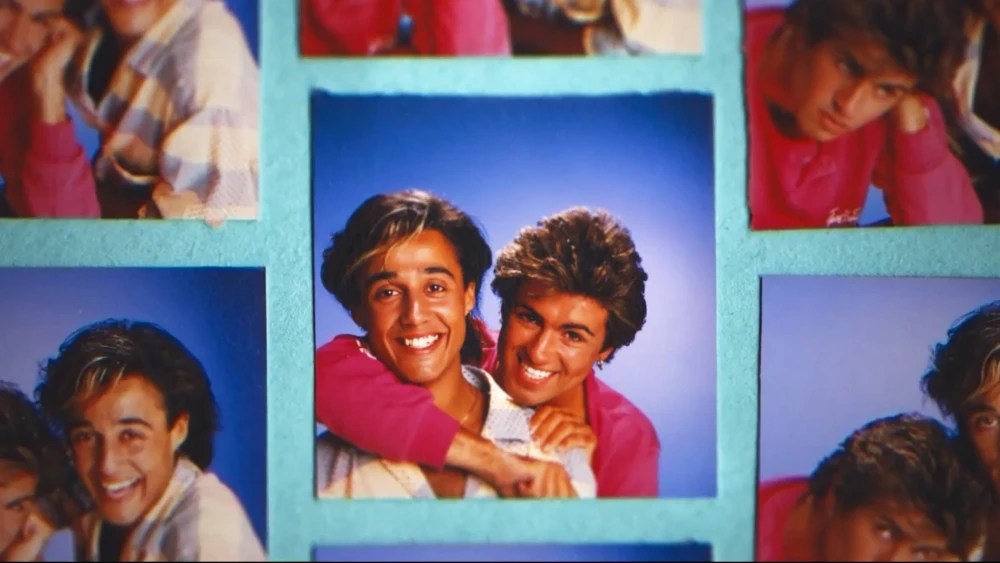
I used to think of Andrew Ridgeley, one half of the pop duo Wham!, as this lucky guy who had hitched his cart to George Michael.
Turns out, the real story is far more interesting.
Wham!, the new documentary by Chris Smith, now playing on Netflix, shows us the unlikely origin story of the band. George Michael, then known by his real name Georgio Kyriacos Panayiotou, was the funny looking new kid at school—oversized glasses, a mess of unruly dark hair—who was taken under the wing of the popular and self-assured Ridgeley. They were both about 12 years old.
They became best mates, inseparable, actually. But Ridgeley was the alpha, if you will. While they shared a love of music, it was Ridgeley’s idea to start a band. There was a false start—a mediocre ska band that went nowhere—and then came Wham!, a name derived from David Bowie’s “Wham bam thank you, ma’am” from “Suffragette City.” The idea for the band’s name, like all their good ideas (sorry, Andrew) came from Panayiotou, who would soon change his name to the stage-ready George Michael.
Turns out Michael was a pop prodigy, able to construct catchy lyrics and club-ready hooks with ease. He was also growing into his masculine beauty. Between adolescence and young adulthood, he had become something of a stunner, exuding a kind of effortless sexual magnetism, but he didn’t seem to realize it yet. (Michael assumed that Ridgeley would be the “hot one” in the band.) Nor did he seem to realize that he possessed one of the all-time great voices in pop music, a rich and multifarious tenor.
The band’s first break, an appearance on Top of the Pops in 1982, is shown here. The clothing, the choreographed dance moves, the song —“Young Guns (Go For It!)”—are all a little corny, but it’s all there already: Michael, shirtless with only a leather vest (to think we didn’t know he was gay), commands the camera like a star.
The band was well on their way.
It takes a while for Michael to fully come into his own—as a songwriter, performer, and producer. But when he does, he’s unstoppable. He was also defiant—while most of British music at the time was the punk/synth hybrid of New Wave, he insisted on writing R&B-tinged pop tunes. If people thought the music was uncool, he didn’t mind. He would make it cool.
In some ways, Ridgeley, the best friend who got him into the biz; the one who gave Michael the confidence to flourish, is a tragic figure. Whenever they’re both on stage, he fades into the background. But what makes Wham! so touching is how much Ridgeley loves Michael and wants only the best for him. If he was resentful, he never showed it. He allowed Michael to seize the limelight, again and again, letting him perform the solo “Careless Whisper” while Wham! was still a duo, letting him join megastar Elton John alone on stage to sing “Don’t Let the Sun Go Down on Me,” letting him take individual credit for the songwriting, and so on.
And Ridgeley knew something that the rest of us didn’t—that Michael was gay and deeply closeted. One of the sad things the documentary reveals is that Michael was fully prepared to come out—to his family and to the world. But suddenly, his fame got too large and it all got away from him. The moment when he could live his truth passed him by. He had to be two people—the real Georgio, who loved men, and the public George Michael, who was an insatiable lady’s man.
Again, all credit to Ridgeley, who never stopped loving his Georgio, never stopped being affectionate with him in public—and kept his secret. (The film shows a particularly painful interview, where a reporter is asking about female groupies and Michael has to pretend that it takes self-restraint to control himself around them. Ridgeley never bats an eyelash.)
Ultimately, there’d be no George Michael without Andrew Ridgeley, which is what makes the film so remarkable. (I liken it to Amadeus, if Salieri was Mozart’s best friend instead of his quietly seething rival.)
The film has lots of wonderful concert and backstage footage—including scenes from the band’s historic trip to China. It’s astonishing to think that Wham! was only around for four years—1982 to 1986—until Michael launched his record-breaking solo career. They packed a lot of hits, sold-out arenas, and triumphs into that brief time.
No one can say for sure whether or not George Michael would still be with us today if he’d felt free to live his life openly and fully as a gay man. (He came out, against his will, in 1998 when he was arrested for “lewd conduct” in a public restroom.) I can’t help but to think he would. He became addicted to fame because it was his only source of fulfillment. Later, inevitably, other addictions came, too. The knowledge of his death hangs over the film, adding a touch of melancholy to the nonstop party vibes.
But man, while he was alive, George Michael was electrifying, a shooting star. It’s a treat to see him come fully into his power. And it’s heartwarming to see the best friend who let him thrive, who stepped aside, who was the embodiment of that saying, “If you love someone, set them free…”
